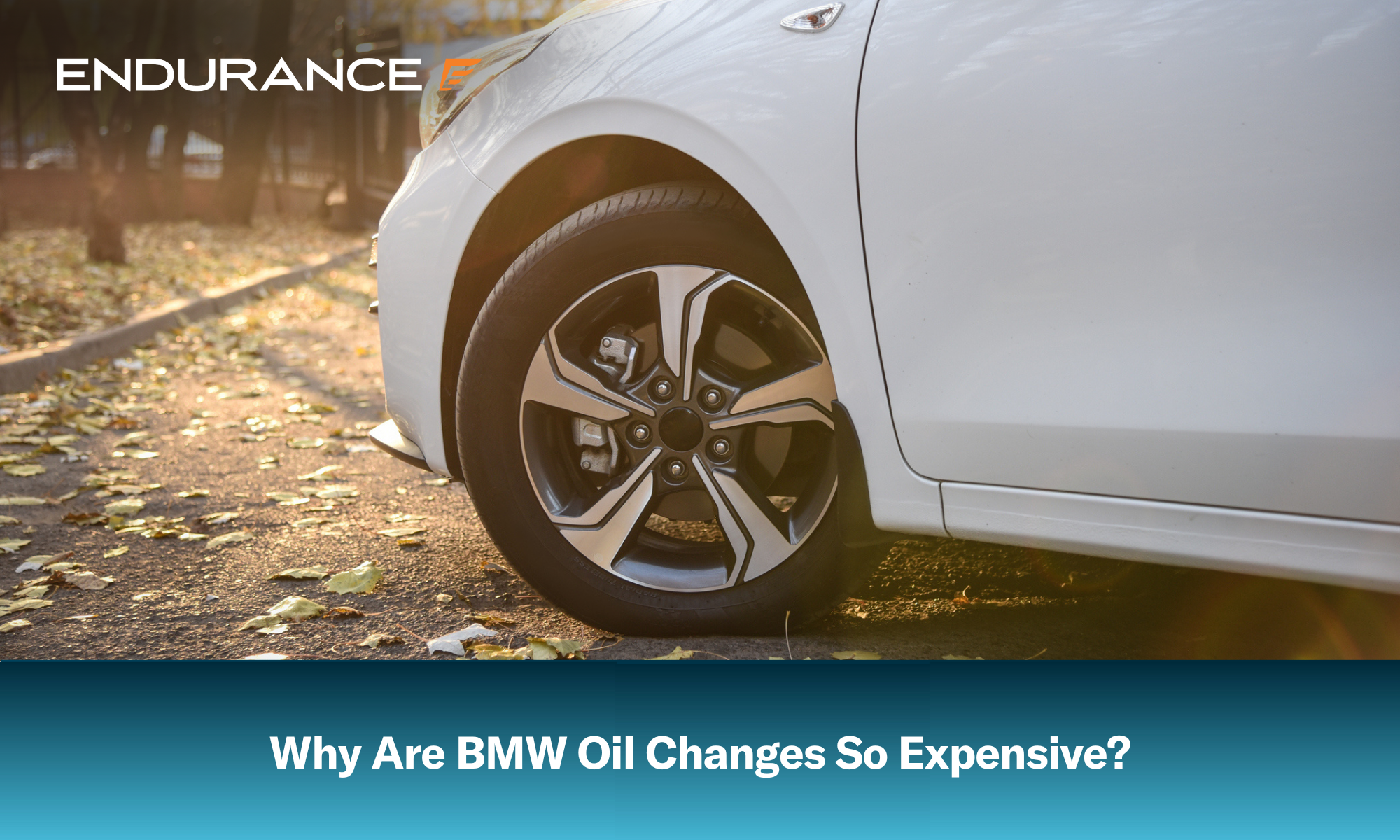Get this deal! Call now.
Speak with a vehicle protection plan specialist and get $300 off any new contract instantly.
Call 866-678-4172
or scan the code below


There really isn’t anything quite like the thrill and excitement surrounding a new car purchase, regardless of whether you’re purchasing a brand new one right off a dealership lot or if it’s a used vehicle. But, while you may find yourself caught up browsing through options online, setting up test drives or haggling for the best price, there’s still more to remember long after the keys are in your hand.
For example, staying up-to-date with your vehicle’s recommended maintenance schedule is one of the most important aspects of owning any vehicle. Without this ongoing preventive maintenance, you could be leaving yourself and your vehicle more prone to a potential breakdown. And depending on the specific make and model of vehicle you own, such as owning a luxury vehicle such as an Audi, Mercedes-Benz, Land Rover or Jaguar, the prices for specific maintenance tasks can vary significantly, even for something as simple as an oil change.
Another luxury automaker, BMW, offers drivers high-performing vehicles that require specialty parts compared to the typical Fords, Toyotas, and Hondas on the road. That means the oil used under the hood is no exception, but why does this make BMW oil changes so expensive?
Changing your vehicle’s engine oil is arguably one of the most important preventative maintenance tasks for any gas-powered vehicle. Yet, despite this being one of the first and most common types of car maintenance owners should be doing with their car, truck, or SUV, many are still left wondering why an oil change is even needed.
An engine is arguably the most important (and often complex) component of any vehicle. To protect this vital part of your vehicle, the engine oil you use will help keep all of the metal parts lubricated to help them move properly, keeping your engine and your vehicle running as they should. Without engine oil, your vehicle would be inoperable.
But, while oil is crucial within an engine, having fresh oil can often be the difference between your vehicle running smoothly or dealing with potentially serious (and costly) issues or lower performance, which is where an oil change comes into play. But, there is more to just swapping out old engine oil with new engine oil. Instead, it’s vital first to understand the different types of oil there are and which kinds your vehicle may accept:
While some vehicles can have an engine capable of handling different types of oil, it’s always important to check before getting an oil change. By referring to your owner’s manual, you can be sure you’re using the correct type(s) of oil recommended for your vehicle, helping you save on potential engine repairs and helping to keep it running for longer.
When it comes to high-performance luxury vehicles, they will always be more expensive when dealing with repairs and maintenance than standard vehicles, including oil changes. Depending on where you go for services, such as either at your local BMW dealership, a certified repair facility or an ASE Certified technician, a BMW oil change typically costs anywhere between $85 and $250+ due to the need for high-performance or a synthetic blend motor oil. This is a vast difference compared to a vehicle getting an oil change with more conventional motor oil.
However, while luxury vehicles like BMWs will always cost more to maintain than standard vehicles, the overall price for repairs or services like an oil change is entirely dependent on the vehicle you own and the type of oil it accepts.
For example, take a look at the average cost of an oil change for a few popular makes and models compared to that of popular BMW vehicles according to RepairPal:
Whether you own a luxury vehicle such as a BMW or any standard vehicle, regularly changing its oil is one of the best ways to keep it working properly for as long as possible. To help you do this, keep an eye out for some of the telltale signs that it’s time for an oil change.
These will include:
The easiest way to know it’s time for an oil change is to follow the schedule outlined in your owner’s manual. The exact number of miles or time between oil changes can vary depending on your vehicle’s make and model, but every 5,000 to 7,000 miles is a currently recommended time frame for most cars. Some vehicles can go even longer than this, so crack open your owner’s manual to see. If you last got your car’s oil changed at a certified auto repair facility or ASE Certified mechanic, chances are they left a sticker on your vehicle’s windshield. This will indicate the specific mileage or date you should change it again, helping you to stay on track of your car’s maintenance needs. Be sure to also check on when you should be doing an engine oil filter change, which will help your vehicle filter out any unwanted contaminants in the oil.
Another easy indication that it’s time for an oil change is when your vehicle tells you it’s time. Almost all modern vehicles come with an oil change indicator light set to turn on when an oil change is necessary. However, some electrical malfunctions could cause this indicator light to fail to activate, so it’s best to always refer to your owner’s manual to make sure you’re up-to-date on when your vehicle needs its next oil change.
Because the oil in your engine acts as the lubricant that ensures all the metal parts under the hood work as one cohesive unit, any unusual sounds or vibrations will usually indicate an issue. Should your oil level be lower than needed, some of those components may start to grind against each other, resulting in a rumbling noise coming from the engine.
Similar to the rumbling noise, you may begin to feel shaking when your vehicle is sitting idle. Like the rumbling noises you may hear, this, too, is caused by metal parts rubbing against each other without the necessary oil to keep things moving smoothly.
If you’re more of a DIY maintenance kind of car owner, be on the lookout for dark or discolored oil, as this is a major sign that your oil may need to be changed. Additionally, you can use an oil level testing stick (also known as a dipstick) to see where the oil level is currently.
Whether you’re a BMW owner or have another luxury vehicle, it’s vital to protect yourself and it from expensive auto repair bills. One way you can do this is by staying up-to-date on your car’s recommended maintenance schedule is the best way to start protecting your vehicle from unexpected costs and repairs. You can also get even more peace of mind when protecting your BMW M3, M4, X3 M and more with Endurance’s newest auto protection coverage — Supreme for Highline vehicles.
This exclusionary coverage plan is designed to help protect select luxury vehicles up to eight years old and with less than 80,00 miles from various luxury automakers, including BMW, Audi, Land Rover, Jaguar, Porsche, and more, from the high costs of unexpected repairs and breakdowns. Plus, as an Endurance customer, you will also automatically receive perks such as 24/7 roadside assistance, trip interruption coverage and rental car reimbursement for free when purchasing the Highline or any other Endurance auto protection plan. For just a small activation fee, you can get immediate access to a full year of Endurance Elite Benefits, including extra perks and savings such as key fob replacements, collision discounts, tire replacements or repairs, and more.

To get started learning more about how Endurance can help protect your BMW today, give us a call directly at (800) 253-8203, or you can request a free quote. You can also find even more articles on a wide variety of automotive topics, such as DIY maintenance tips, expert auto advice, extended warranty comparison guides and much more, at the Endurance blog.

We're here to make sure you get the most comprehensive EV protection. That's why we've partnered with Xcelerate Auto to offer you transparent and dependable Tesla coverage.
Want us to contact you about XCare coverage for your Tesla?



Call for $300 off any new plan!
By clicking the button, you consent to Endurance using automated technology to call, email, and text you using the contact info above, including your wireless number, if provided, regarding auto protection or, in California, mechanical breakdown insurance. You also agree to the Endurance Privacy Policy and Terms and Conditions. Consent is not a condition of purchase, and you can withdraw consent at any time. Message and data rates may apply.
Speak with a vehicle protection plan specialist and get $300 off any new contract instantly.
Call 866-678-4172
or scan the code below



Simply fill out the information below and we will follow up fast with your free no-obligation quote.
By clicking the button, you consent to Endurance using automated technology to call, email, and text you using the contact info above, including your wireless number, if provided, regarding auto protection or, in California, mechanical breakdown insurance. You also agree to the Endurance Privacy Policy and Terms and Conditions. Consent is not a condition of purchase, and you can withdraw consent at any time. Message and data rates may apply.

To speak to a vehicle protection plan specialist and save $300
Scan the code below
Since the age of 16, Keith has been immersed in the automotive industry, beginning his career by helping his dad fix vehicles at a young age. Keith now owns his own family-run, ASE Certified repair shop, A+ Autocare. At his shop, he focuses on building trusting relationships with his community through exceptional customer service. Read more about Keith.